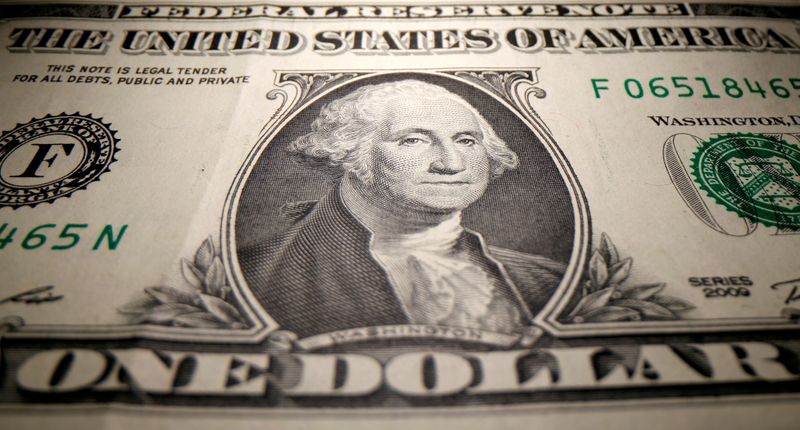By John McCrank
NEW YORK (Reuters) -The dollar rose on Monday as surging energy prices prompted investors to seek safe havens, with the greenback hitting a nearly three-year high against the yen on expectations the U.S. Federal Reserve will announce a tapering of its bond purchases next month.
Oil prices surged on Monday to multi-year peaks, fueled by the rebound in global demand. Concerns that the price rises may exacerbate global supply-chain backlogs caused Wall Street to give up early gains.
"Risk aversion is kind of settling in," said Edward Moya, senior market analyst at FX broker Oanda. "We’re not going to get any answers on the global energy crisis or inflationary pressures anytime soon and those risks are likely to keep a lot of investors focused on safety in the short-term," he said.
The dollar index, which measures the greenback against a basket of peers, was up 0.174% at 94.328, not far from its one-year high of 94.504 touched earlier this month.
U.S. fixed income markets are closed on Monday for a holiday but the yield on benchmark 10-year Treasuries hit a four-month high of 1.617% on Friday, even after data showed the U.S. economy created the fewest jobs in nine months in September, missing forecasts.
However, data for August was revised up sharply and the jobless rate dropped to an 18-month low, suggesting fears of labor shortage remain justified, keeping inflation worries alive and giving the Fed justification to reduce its emergency stimulus begun last year.
The yen, which is known for being particularly sensitive to interest rate differentials, hit 113 yen per dollar for the first time since December 2018.
With Japanese government bond rates well anchored and the Bank of Japan keeping policy on ice, expectations of a Fed tapering announcement soon should press U.S. Treasury yields higher, favouring higher dollar-yen ranges, said Roberto Cobo Garcia, head of FX strategy at BBVA (MC:BBVA).
The main risk for the dollar-yen pairing this week comes from U.S. data, with consumer price index and retail sales both due.
"Investors need to be a bit careful, because if inflation and consumer spending numbers this week fall short, it will be very hard for the dollar to hold onto its gains," said Kathy Lien, managing director at BK Asset Management.
The Australian dollar hit its strongest since Sept. 14, and was most recently up 0.57% against the dollar at $0.73505, helped by strong commodities prices and a partial reopening of Sydney, Australia's largest city.
Concern about inflation is not limited to the United States, with supply disruptions and rising commodity prices affecting many countries.
The British pound had risen in early London trading on growing expectations the Bank of England could raise interest rates to curb inflation, but faded later in the session over energy price concerns, last down 0.08% at $1.3607.

Canadian markets were closed for a holiday, but the loonie touched a two-month high of C$1.24465 thanks to surprisingly strong Canadian payrolls data released on Friday and lofty oil prices.
In cryptocurrencies, bitcoin hit a five-month high, last up 5.06% at $57,486, while ether was up 4.3% at $3,569.